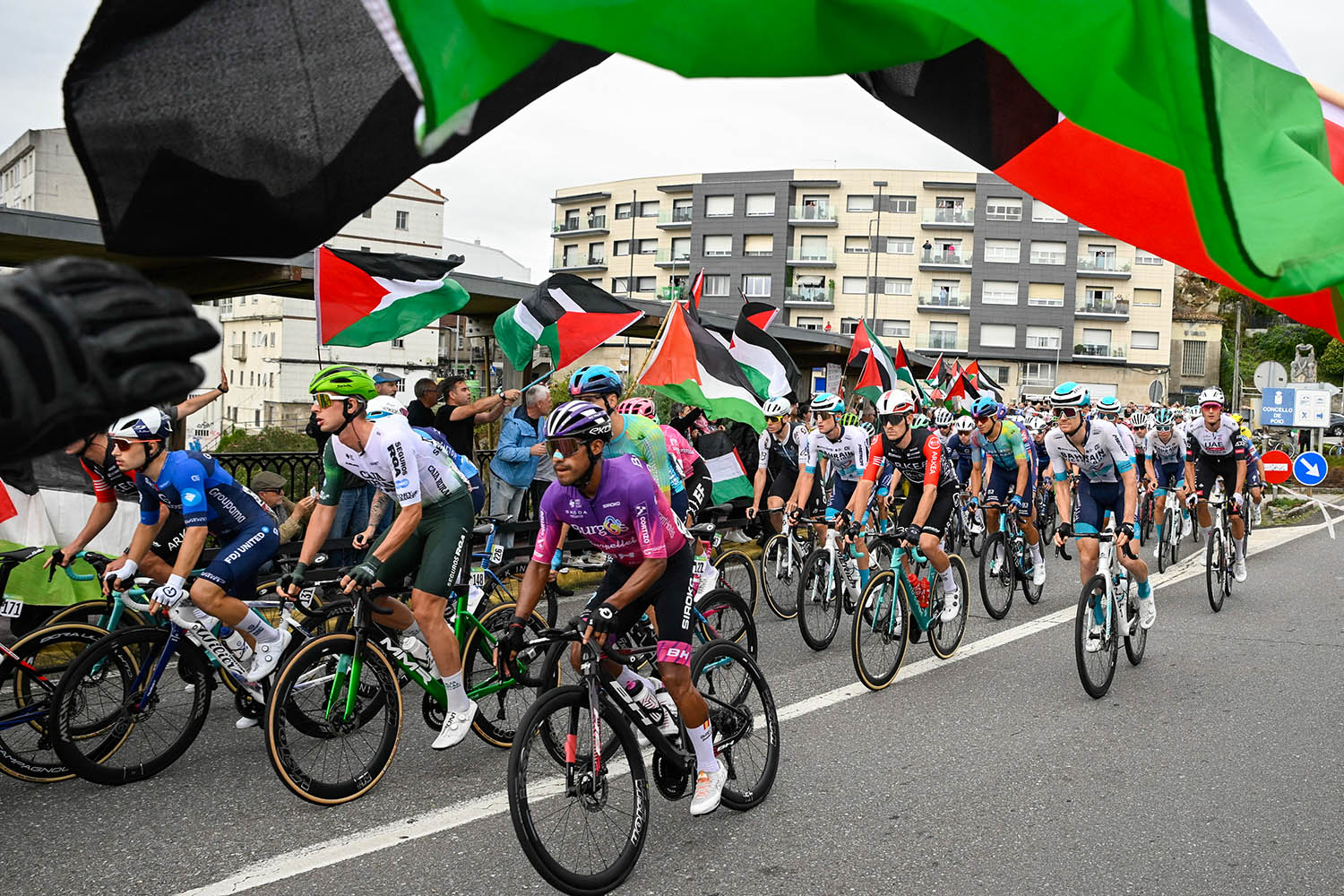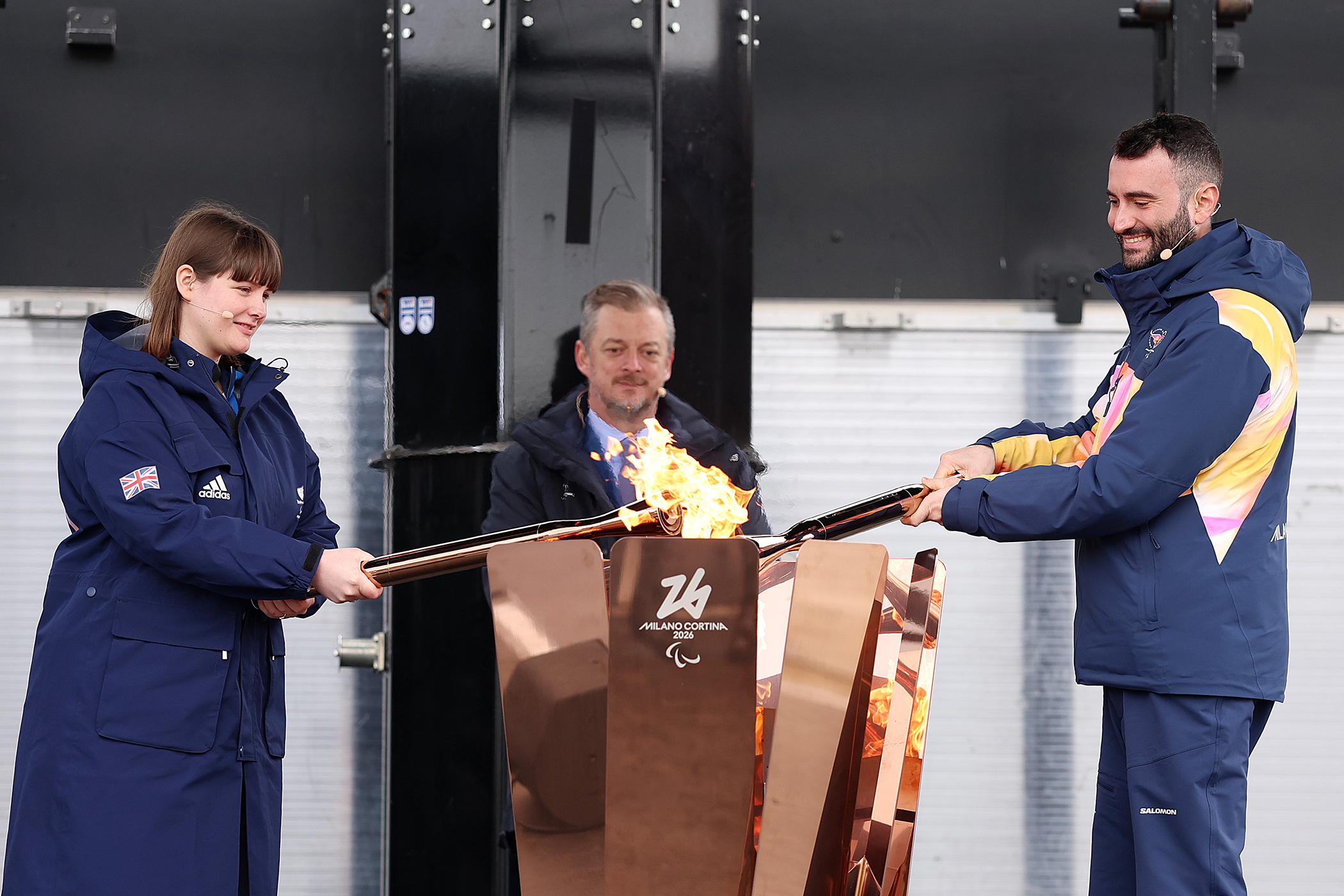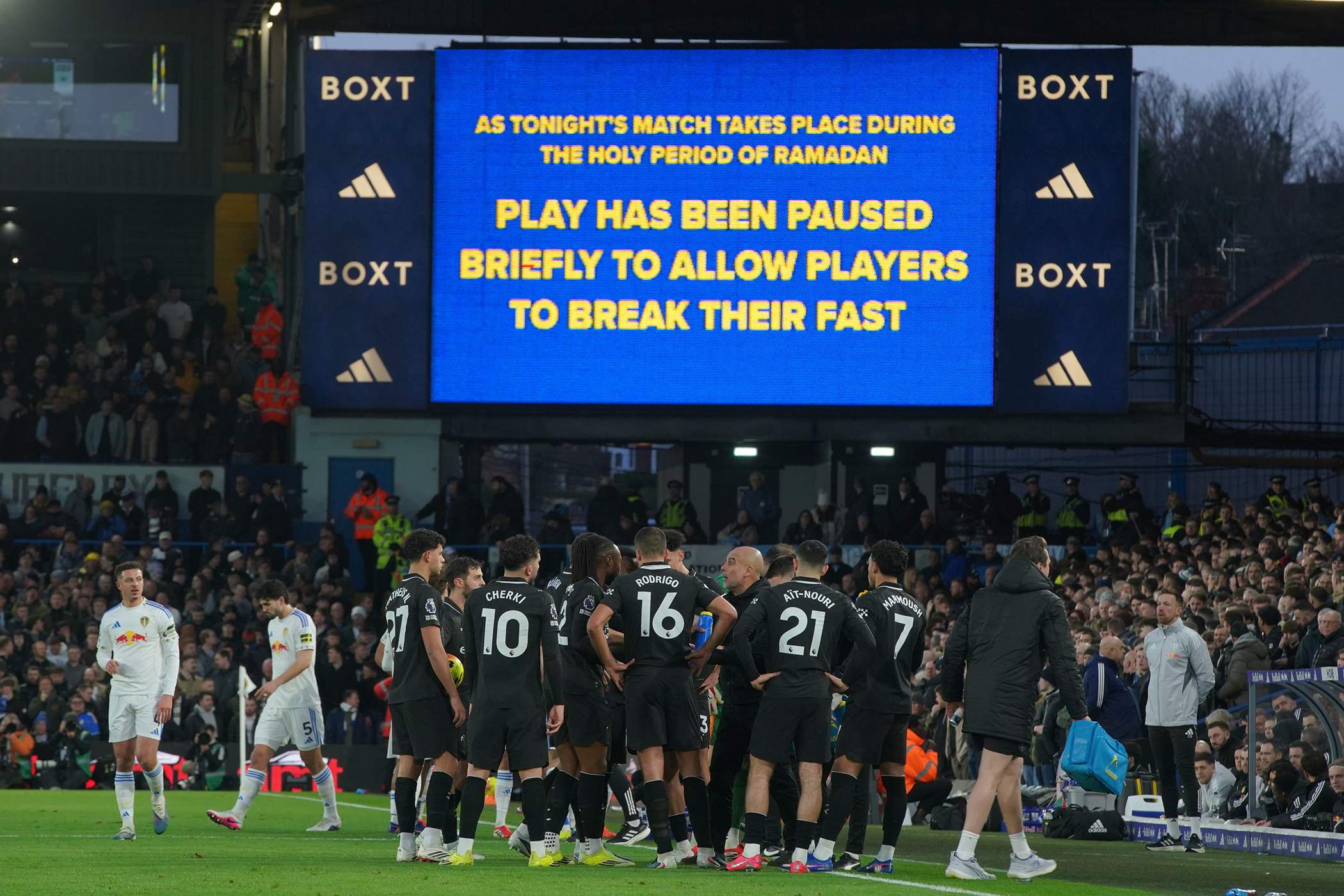When Benjamin Netanyahu waded into the chaos of this year’s Vuelta a España and tweeted his message of support to the Israel Premier Tech cycling team, he set in motion a chain of events that may lead to even worse disruption at next year’s Tour de France.
Next year’s Tour starts in Barcelona in 300 days and already the anti-Israel Premier Tech team sentiment is building. Sports and politics don’t mix, runs the old cliché, but in the case of billionaire Sylvan Adams’s cycling team, they are intertwined.
“Great job to Sylvan and Israel’s cycling team for not giving in to hatred and intimidation,” Netanyahu posted a week ago after Adams and his team withstood pressure to quit the Vuelta due to roadside protests. “You make Israel proud!”
Netanyahu’s sentiments have further fuelled a growing sense of outrage in Spain at the presence of the IPT team in the Spanish national tour.
Various protest groups are now targeting any races in which the team compete, including next year’s Tour, organised by French promoters Amaury Sport Organisation (ASO).
Futuro Vegetal, a civil disobedience group, told Le Temps that “protesting at the Tour de France is the least we can do” and said it was “very likely” that there would be further protests next July in Barcelona.
Another group, the Palestinian Campaign for the Academic and Cultural Boycott of Israel (PACBI) said that “protests will continue at cycling races as long as hypocritical Western institutions absolve Israel” and that “the immediate finish line is the end of the genocide”.
The issue has also reached government. Spanish Foreign Minister José Manuel Albares maintained that the team should have left the race, saying: “We cannot continue to have a normal relationship with Israel, as if nothing is happening.”
The 2025 Vuelta, characterised by three weeks of stop-start racing, punctuated by truncated stages, protester-induced crashes, police cordons and riot shields, is scheduled to come to an end today when the race limps into Madrid.
For the final processional stage in the city centre, the police presence will be doubled, according to Madrid mayor, Inma Sanz.
Newsletters
Choose the newsletters you want to receive
View more
For information about how The Observer protects your data, read our Privacy Policy
The cost of this will be picked up by the race organisers, just as it will be for the Tour de France next July, if extra security measures are required.
There has already been a ripple effect into other bike races, with further demonstrations across the Atlantic in Canada, where riders, including Tour de France winner Tadej Pogačar, have gathered for the GP Quebec. “I think the riders are a little scared of what could happen,” Pogačar said.
Even some of IPT’s former employees have now admitted their unease and the team are believed to be struggling to retain some marquee names.
Former professional Alessandro De Marchi, who was with the team in 2021 and 2022, told The Observer this summer that “right now I wouldn’t sign a contract with Israel”, and added that he “wouldn’t be able to manage the feelings I have”.
The peloton has voted to continue racing in the Vuelta, even if many of those riding for rival teams seemed keen for the Israel Premier Tech team to just pack up and go home.
‘Protesting at the Tour de France in Barcelona is the least we can do. It is very likely’
‘Protesting at the Tour de France in Barcelona is the least we can do. It is very likely’
But after being backed by Netanyahu, Adams, who labels the western media “useful idiots” and stated that Israel should “finish the job” in Gaza, has no intention of doing that.
Adams said that he and his team “will not surrender to the terrorists”. But there were others in the peloton who had sympathy for the protesters.
“People do it for a reason,” Vuelta leader Jonas Vingegaard said of the protesters. “It’s horrible what’s happening currently and I think those protesting do so here because they need a forum to be heard.”
This debacle should not come as a surprise to a poorly regulated sport which has welcomed nation-state sponsors and unquestioningly accepted their wealth, while being studious to avoid questions about politics.
Adams, who styles himself as a “self-appointed ambassador at large for the State of Israel”, has never concealed his beliefs, nor hidden the objectives behind his sponsorship. At the same time, he has invested heavily in the sport and its globalisation.
Adams was believed to have invested more than $16m (£11.8m) in persuading race organisers RCS to lure the 2018 Giro d’Italia to Israel. The son of a Holocaust death camp escapee, he has built a velodrome in Tel Aviv and also influenced the decision to stage the 2019 Eurovision in Israel.
His team may continue to rely on “wildcard” invitations to World Tour level, but it is hard to see them being blackballed. Both ASO and the UCI would be keen to avoid losing one of the wealthiest teams and wary of accusations of being anti-semitic.
There is no effective clause within World Tour racing that isolates a team pursuing their own political agenda, or that penalises a team for prioritising their own wellbeing.
So Grand Tour racing has reached an impasse that threatens to spiral out of control as the war in Gaza continues. Adams, with Netanyahu at his shoulder, will not back down, and neither will the protesters.



